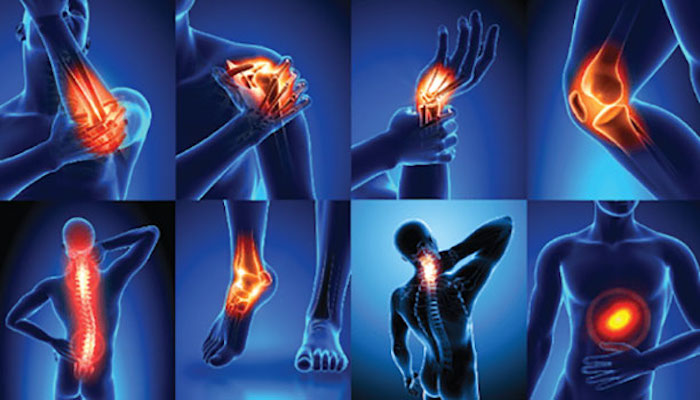
Pain can be a huge barrier to living a happy and fulfilling life. When I meet a new patient for the first time, I often let them know that while working on the pain problem itself is very important, my primary goal is to break down this barrier and help them get to healthy and well overall.
What exactly do I mean by healthy and well? I think our bodies are meant to move, our hearts want to feel and to love, and our minds want to grow and engage with the world around us. If the pain we experience is standing in the way, then we need to find a path that will ultimately restore these vital elements in our lives once again. Shifting to this mindset can take our pain management strategies to a whole new level one where we’re not only focusing on decreasing the feeling of pain at any given moment but also seeking a plan that helps deliver a more vibrant and fulfilled version of ourselves.
Below are five key elements that I believe you need to look for in whatever pain treatments, therapies, or medications you’re considering. Keep these in the back of your mind as you map out the path you want to be on for today, tomorrow, and the days ahead.
Mobility
Think about how much your quality of life depends on how mobile you are. The more you can get around, the more you can interact with the world. And the less mobile we get, the more disconnected and isolated we become. Being able to get around even a little bit better can make a huge indifference when it comes to going places, seeing people, and just experiencing the world. Improving mobility can mean being able to take more steps, but it can also mean driving, using public transportation, or any other way that you can think of that will help you get around. Value treatments that help you go places.
Interaction
The quality of our social connections plays a vital role in our overall well-being and happiness, but being in pain can cause us to withdraw from others. We may not feel like leaving our rooms, let alone go to work or socialize with those we care about. And the more we isolate, the more down and depressed we feel, creating a vicious cycle: The more depressed we feel, the less we want to interact with others. Seek out opportunities for positive social bonding and emotional support. As an example, I work with a spirited group of patients who hold a weekly walking group at a park near my center (while still maintaining social distancing), and they use this time to connect and support each other.
Independence
Sometimes being in pain can leave us more reliant on others for help. While you can appreciate getting help with tasks like cooking meals or getting dressed when you need it, becoming just a little bit more independent can help relieve anxiety, boost self-confidence, and lessen the impact that pain has in our lives. Look for treatment strategies that can help you regain a greater sense of control.
Validation
If you’re like most people with chronic pain, you probably feel really misunderstood, like nobody really knows what you are going through, and that can include your friends, spouse, family, and co-workers. Chronic pain can be a silent disease that doesn’t show up on X-rays, MRIs, or blood tests, which makes it even harder for others to understand what it's like to walk in your shoes. And when others just don’t believe that you are really suffering, that can feel like a punch in the gut. But remember, with an estimated 50 million Americans who have chronic pain, you are definitely not alone. Pain is a problem that affects just about every family at some point, so don’t let what others say or think bring you down.
Love
My fifth key is my most important but overlooked: love. The most basic fundamental need of all human beings is love to receive love, but also to give love to others. To feel truly fulfilled, we need to have this exchange of positive energy in our lives. But pain can strip love from our lives in so many different ways, and this can be more devastating than the pain itself. Living with chronic pain can mean losing out on romance, intimacy, social bonds, and family connections. I would argue that bringing in more love is the single most important goal of any pain management plan. Think about your treatments, your medications, the doctors you see, whatever you are doing. If it isn’t helping bring more love into your life, then think about what needs to change.
Consider using these five key elements as a guide as you create a pain management plan that helps you thrive.
Precision Pain Care and Rehabilitation has two convenient locations in Richmond Hill – Queens and New Hyde Park – Long Island. Call the Richmond Hill office at (718) 215-1888, or (516) 419-4480 for the Long Island office, to arrange an appointment with our Interventional Pain Management Specialist, Dr. Jeffrey Chacko.













